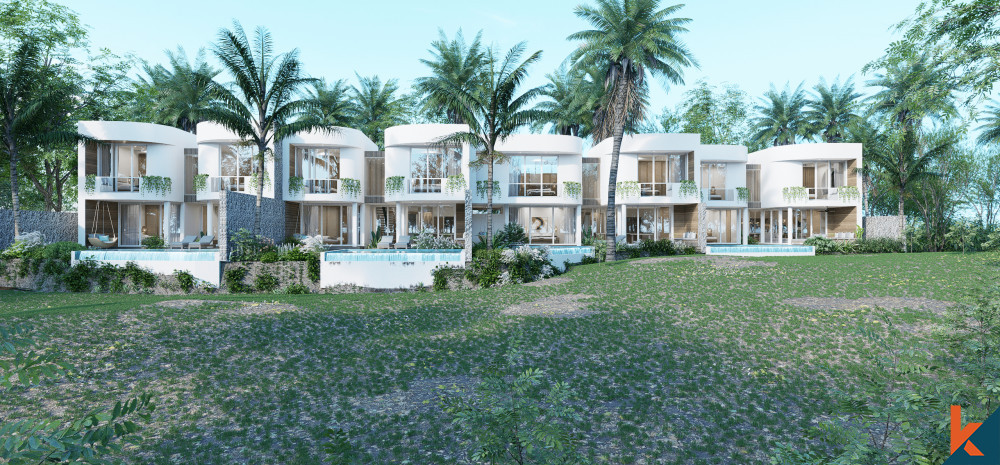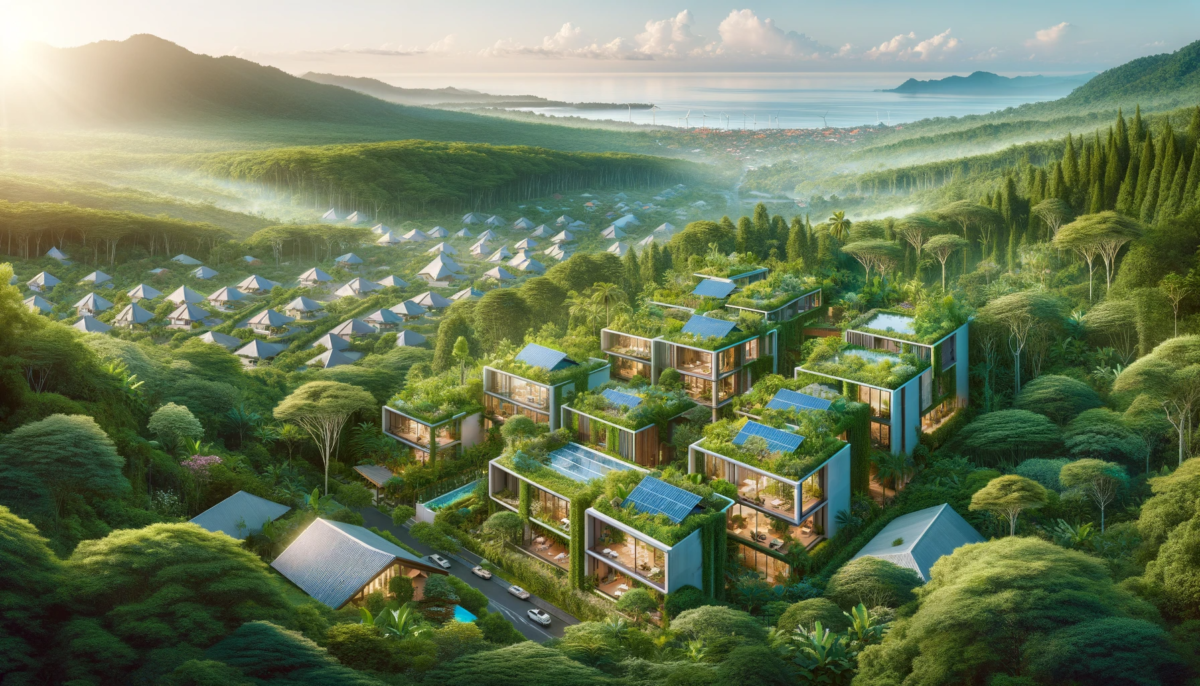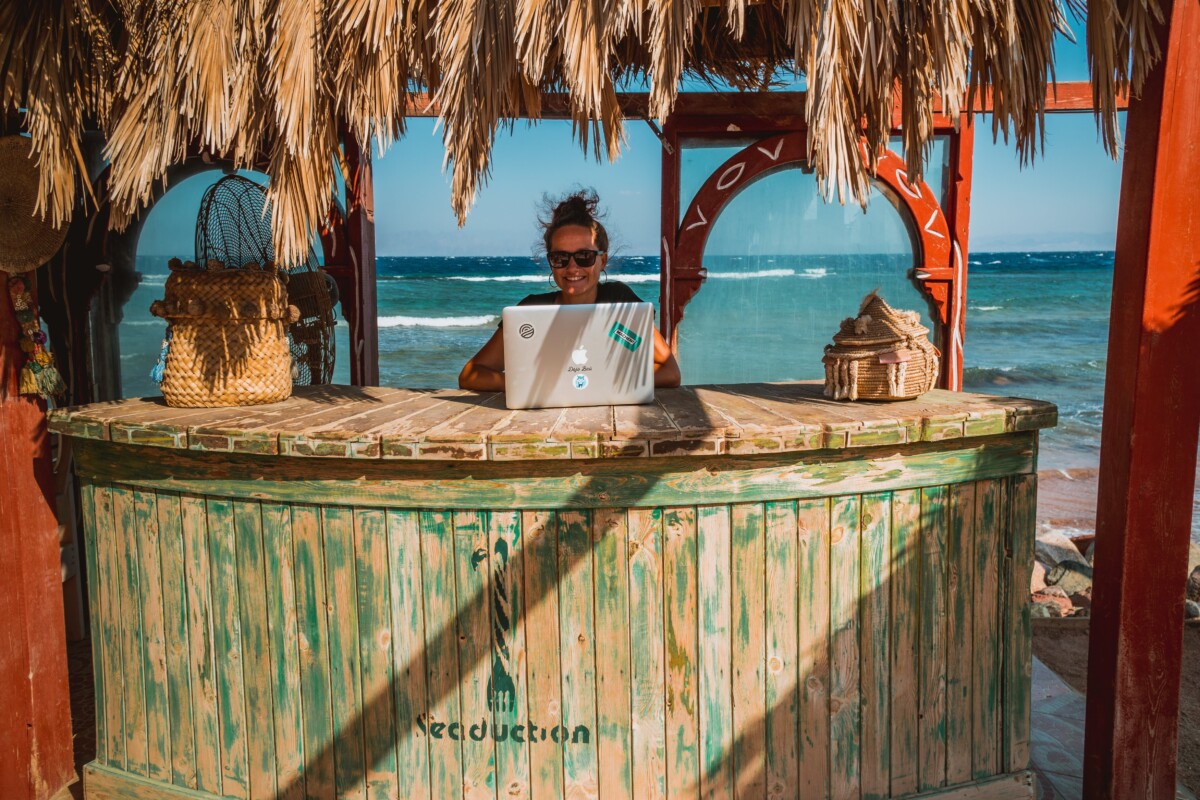Bali, an enchanting island paradise, is not just a tourist haven but a pioneer in an innovative initiative: integrating real estate development with environmental conservation. This approach aims to preserve Bali’s natural allure while promoting sustainable land use, forest conservation, and wildlife protection.
The Fusion of Development and Sustainability
The new wave of real estate projects in Bali sets a sustainability benchmark. These developments are not just structures but ecosystems in themselves, designed to minimize environmental impact. These projects set a precedent in eco-conscious construction by incorporating sustainable architecture and employing green building practices like using recycled materials.
The essence of these projects lies in their harmony with the natural surroundings. Designs incorporating natural light, ventilation, and renewable energy sources like solar power are becoming the norm. The aim is to create energy-efficient living spaces, reduce waste, and blend seamlessly with the island’s landscape.
Sustainable Land Use: A Holistic Approach
Sustainable land use in Bali’s real estate sector extends beyond construction. It encompasses the planning of entire communities, emphasizing preserving natural landscapes. This involves creating community spaces that promote a sustainable lifestyle, like organic gardens and shared green spaces.
These developments encourage a lifestyle that respects the environment. Features like communal composting, eco-friendly transportation options, and local sourcing of materials are commonly adopted. This approach not only reduces the ecological footprint but also enhances the well-being of residents.
Wildlife Protection: Coexisting with Nature
Wildlife conservation is a cornerstone of Bali’s real estate projects. Developers collaborate with conservationists to design spaces that are safe havens for both humans and animals. Efforts are made to preserve natural habitats and to ensure that construction does not disrupt the local wildlife.
These initiatives often extend beyond the boundaries of the developments. By engaging with local wildlife organizations and implementing conservation programs, real estate projects in Bali are playing a crucial role in preserving the island’s biodiversity.
Forest Conservation: Preserving Bali’s Green Heart
Bali’s lush forests are crucial for maintaining the island’s ecological balance. Conscious of this, developers are integrating these green spaces into their projects. This strategy is twofold: it preserves the natural beauty of the island and enhances the living experience for residents.
The focus on forest conservation is not limited to preserving existing forests. Many projects also involve reforestation efforts, planting native species, and creating green corridors that connect different habitats. This proactive approach contributes significantly to the health of Bali’s ecosystem.

Community Involvement: Engaging Local Residents
The involvement of local and nomad communities is key to the success of these conservation-focused real estate projects. Developers engage with residents to ensure that the projects align with environmental goals while respecting the cultural and social fabric of Bali.
Initiatives like environmental education programs and community-based conservation efforts are integral to these projects. By fostering a sense of ownership and responsibility towards the environment, these projects are creating a community that is actively engaged in conservation efforts.
The Economic Perspective: Eco-tourism and Sustainable Growth
Bali’s unique approach to real estate is not only beneficial for the environment but also for the economy. The focus on eco-friendly and sustainable developments attracts eco-conscious tourists and investors, thereby creating new opportunities in eco-tourism.
These projects are a source of sustainable job creation, providing employment opportunities in eco-tourism, green construction, and conservation. This not only contributes to the local economy but also promotes a sustainable model of development.
A Global Model for Sustainable Development
Bali’s approach serves as a model for other regions grappling with the challenges of development and conservation. By prioritizing sustainability, Bali is demonstrating that it’s possible to achieve economic growth without compromising environmental integrity.
This strategy has global implications, offering insights into how development and nature can coexist harmoniously. Bali’s commitment to sustainable real estate development is an inspiring blueprint for a more sustainable future worldwide.
Conclusion
Bali’s journey in using real estate as a tool for conservation is a shining example of sustainable development. It’s a testament to the island’s commitment to environmental protection and a model for the rest of the world. For those interested in being a part of this innovative movement, buying property in Bali offers an opportunity to invest in a sustainable future.

